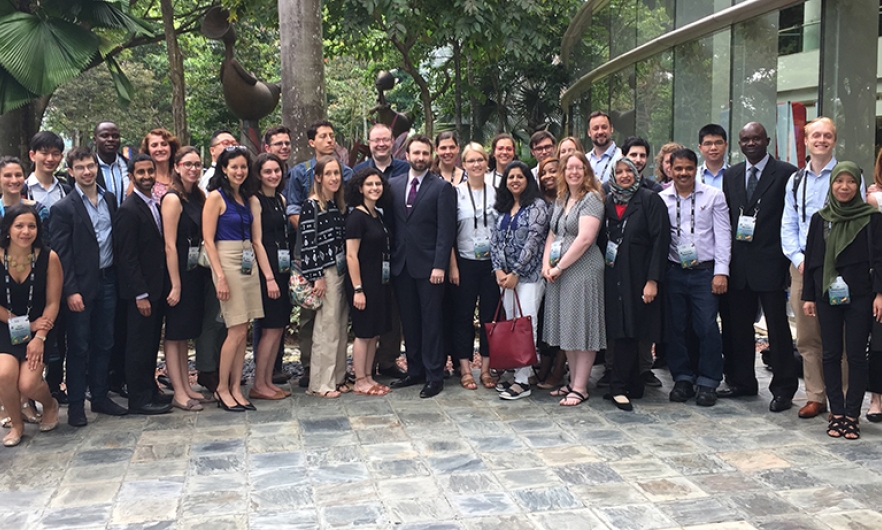International biosecurity fellows reflect on experience at 7th International Meeting on Synthetic Biology
Center News

August 28, 2017 – In June 2017, the Johns Hopkins Center for Health Security in partnership with Drew Endy, PhD, associate professor of bioengineering at Stanford University, brought together 32 emerging biosecurity leaders from all over the world for a fellowship program at the 7th International Meeting on Synthetic Biology (SB7.0) in Singapore.
In addition to attending the conference, fellows had the opportunity to engage with practicing experts and to discuss—with peers and senior scientists and government officials—biosecurity as it relates to synthetic biology. The fellows represented 19 countries on 6 continents and professions in the public and private sectors, the nonprofit space, and academia.
Their brief reflections offer an interdisciplinary assessment of biosecurity issues and approaches in global synthetic biology research, now and into the future, as well as thoughts on the fellowship experience.
The fellowship program was sponsored by the Open Philanthropy Project, hosted by Endy, and coordinated by the Center, BioBricks Foundation, and SynBioBeta. Center staffers Crystal Watson, DrPH, MPH, senior associate, and Matt Watson, senior analyst, organized the fellowship discussions and events and joined the fellows in Singapore for the 4-day experience. Gigi Kwik Gronvall, PhD, a senior associate at the Center and author of Synthetic Biology: Safety, Security, and Promise, spoke at SB7.0 and helped lead the fellowship’s panel discussions along with Watson and Watson.
The text of Matt Watson’s presentation on the history of bioviolence is available at bifurcatedneedle.com.
More information about SB7.0 is available at sb7.info. The agenda for the SB7.0 Biosecurity Fellowship Program is available here.
About the Johns Hopkins Center for Health Security:
The Johns Hopkins Center for Health Security works to protect people from epidemics and disasters and build resilient communities through innovative scholarship, engagement, and research that strengthens the organizations, systems, policies, and programs essential to preventing and responding to public health crises. The Center is part of the Johns Hopkins Bloomberg School of Public Health and is located in Baltimore, MD.
